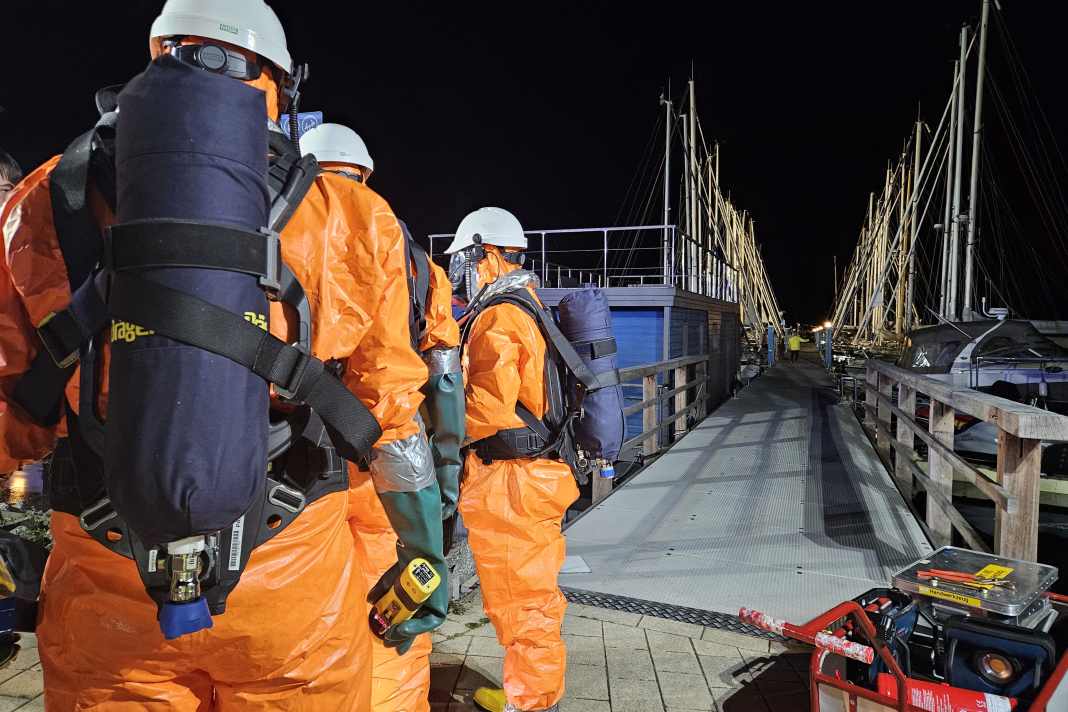Baltic Sea: Charter guests evacuated after CO alarm, jetty partially evacuated
Nils Leiterholt
· 03.09.2024




According to the fire brigade report, a charter guest noticed the increased CO concentration in the interior of the yacht he had rented late on Saturday evening with the help of a carbon monoxide detector. He therefore alerted the fire brigade at around 9.30 pm. After a brief inspection, the fire brigade evacuated the affected boat and the neighbouring vessels. The hazardous goods fire brigade was then alerted.
The batteries were removed by firefighters in chemical protection suits, which also protect against acid. Professional disposal is to be carried out by the Inselbauhof Fehmarn.
Charging error causes CO excess
Presumably, the batteries boiled over due to a technical error during charging. As a result, the CO concentration was 180 ppm despite the room actually being well ventilated. The World Health Organisation (WHO) recommends a concentration of no more than 20 ppm for a stay of more than one hour. The measured value was therefore nine times higher. The apparent detector, Christoph Schmidt, commented on the operation on the fire brigade's Facebook page: "[...] The situation was critical and life-threatening for us. [...] CO detector saves lives".
After the fire brigade operation was completed, the jetty was reopened and the ships could be boarded again. However, as moin.de reported, the crew of the charter yacht on which the incident occurred did not spend the night on the ship due to potential residual gases.
Read also:
About carbon monoxide
Carbon monoxide is a colourless, odourless and tasteless gas that is extremely dangerous to humans. It is mainly produced by incomplete combustion of carbon-containing materials, such as in car exhausts, open fires or faulty heating systems. Inhaling carbon monoxide can be life-threatening, as the gas binds to haemoglobin in the blood and thus blocks the transport of oxygen. This leads to a lack of oxygen in organs and tissues and can result in unconsciousness, severe symptoms of poisoning and, in the worst case, death. For these reasons, it is very important to install a carbon monoxide detector in closed rooms, especially those with a gas cooker.
